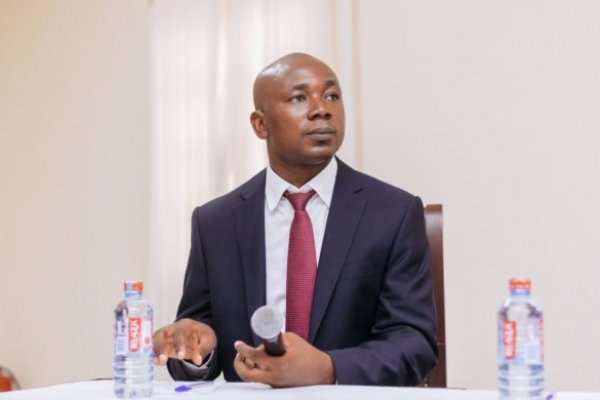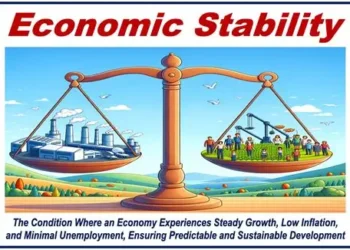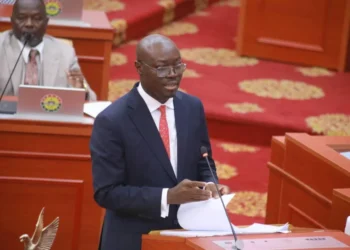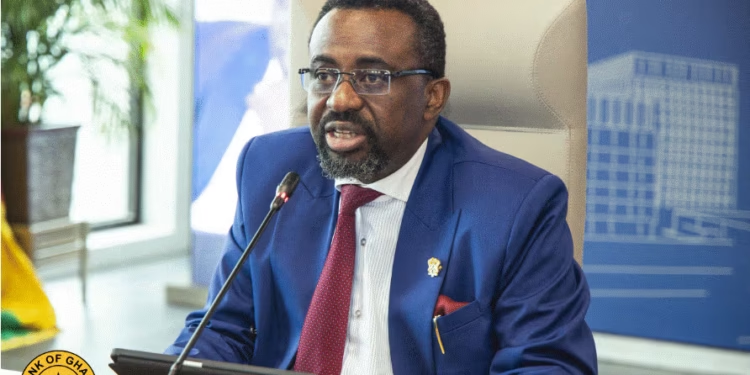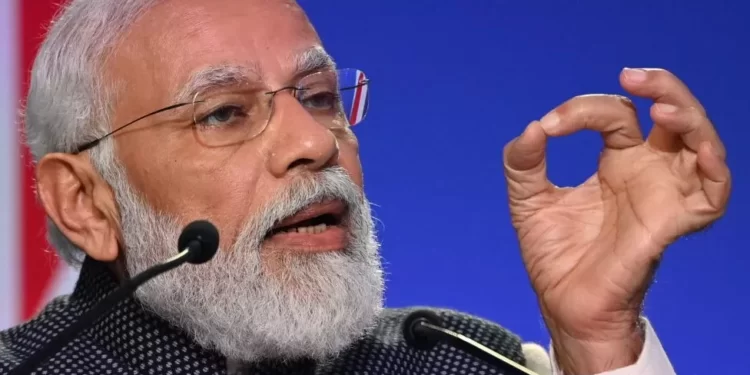Professor Godfred Alufar Bokpin, an Economist with the University of Ghana Business School (UGBS), has declared that Ghana has failed woefully to achieve economic independence 65 years on after independence.
The Economist bemoaned the current state of the Ghanaian economy, noting that this is not what the forbearers of the country envisioned when the country gained self-rule from its colonial masters 65 years ago.
Prof. Bokpin however, admitted that though coups have derailed progress, the current economic situation “Is an indictment on our resolve to have self-rule and determine the future destiny of our own country.”
“Though the 1966, 1972, 1979, and 1981 coups had impacted negatively on the efforts in achieving economic independence, not much had been done by various Government’s to totally wean the country off the West.”
Prof. Bokpin
Forebears Would be Angry at Current Situation
Prof. Bokpin stated that on the day of Ghana’s Independence (March 6, 1957), the former President, Dr Kwame Nkrumah, was optimistic that the country, and for that matter Africa, were on course to chart a new path and manage its economy for the well-being of its people. However, he noted that “our forefathers would have been totally disappointed if they are around today.”
“Our forefathers who fought for us, if they were to be around today, they would not be happy because it wasn’t only for self-rule but a total liberation of the country and the continent but that hasn’t happened.
“In terms of economic liberation or independence, we’ve failed and there are indicators that beyond one’s political ideology you can look at and say that our economy is very much dependent on them (the West).”
Prof. Bokpin
Prof. Bokpin cited the recent depreciation of the cedi to buttress his point. He intimated that the current happenings in the country is as a result of mismanagement and is indicative of the country’s economic struggles post 65 years of independence.
“If you look at the number of times that the cedi has depreciated as a result of economic mismanagement, corruption, ballooned public debt, slam in commodity prices reflecting structural bottlenecks, it doesn’t tell you that we’ve gained economic independence.”
Prof. Bokpin
How to Overcome the Challenges
In order to overcome the current challenges as a country and stop elite dominance, Prof Bokpin suggested that the citizens must eschew from tribalism and have a united front.
“To end the elite capture, unnecessary tribalism and ethnicity, and love each other to want to have the best for each other in this country. We need honesty and integrity. More of education is fine, but more of integrity and honesty to the extent that we’ll shun corruption and deal with corruption aggressively with the same shame it appears.”
Prof. Bokpin
A similar sentiment was echoed by Prof Peter Quartey, the Director of the Institute of Statistical, Social and Economic Research (ISSER). He also noted that Ghana has not been able to achieve the anticipated economic independence associated with the self-rule.
Prof. Quartey averred that the country has seen some improvement, particularly in communication and road infrastructure, poverty reduction and other areas, but “unfortunately, we’ve not been able to be economically independent.”

“Going forward, we have to look inward and raise more domestic revenue through direct taxes. I’m not asking for an increase in taxes; the existing ones, we should be able to collect them, like property rate.
“We should invest not only in production, but in all the value chain, so that we can even be processing to add more value. We should be storing and processing so that food prices can be stable, and less dependent on imported food.”
Prof. Quartey
Ghana, formerly, Gold Coast, gained independence from British colonial rule on March 6, 1957, becoming the first sub-Saharan African country to do so. The country celebrated 65years of independence yesterday March 6. However, many Ghanaians believe not much has been achieved post independence.
READ ALSO: Sovereigns May Find Anti-Inflation Policies Tough To Roll Back – Fitch Warns

